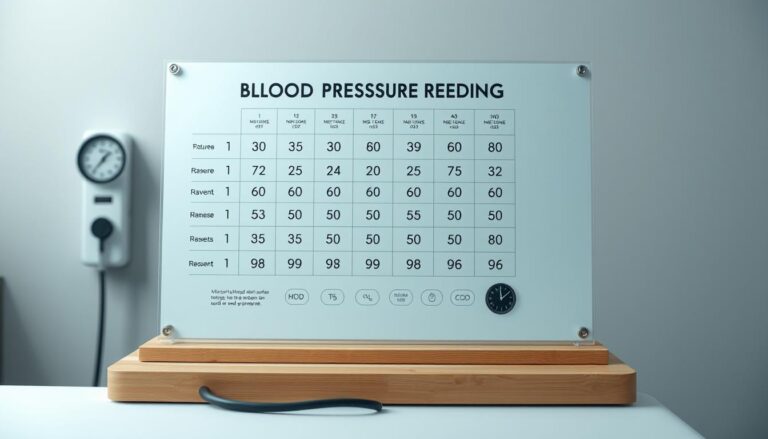Early Signs of Thyroid Imbalance You Shouldn’t Ignore

Your thyroid gland, a small butterfly-shaped organ located at the base of your neck, plays a massive role in regulating your body’s metabolism, energy levels, and overall health. When this crucial gland malfunctions, it can affect virtually every system in your body. Unfortunately, many people dismiss early warning signs as stress, aging, or lifestyle factors, delaying diagnosis and treatment. Understanding the early indicators of thyroid imbalance can help you seek timely medical intervention and prevent serious complications.
Understanding Thyroid Gland Issues
The thyroid gland produces hormones that control how your body uses energy. When it produces too much hormone, you develop hyperthyroidism; too little leads to hypothyroidism. Both conditions create distinct signs and symptoms that shouldn’t be ignored. Early detection through awareness and appropriate thyroid test procedures can make a significant difference in managing these conditions effectively.
Common Early Warning Signs
Unexplained Weight Changes
One of the most noticeable early signs of thyroid imbalance is sudden, unexplained weight fluctuation. If you’re losing weight despite eating normally or gaining weight despite diet and exercise efforts, your thyroid might be the culprit. Rapid, unintentional weight loss often indicates hyperthyroidism, while unexplained weight gain typically points to hypothyroidism.
Energy Level Disruptions
Extreme fatigue that doesn’t improve with rest often signals hypothyroidism. Conversely, feeling excessively energetic, restless, or unable to sit still might indicate hyperthyroidism. These energy disruptions interfere with daily activities and quality of life, making it essential to investigate the underlying cause.
Temperature Sensitivity
Do you constantly feel cold when others are comfortable? This could indicate hypothyroidism. Alternatively, excessive sweating and heat intolerance suggest hyperthyroidism. Your thyroid hormones regulate body temperature, so sensitivity changes are significant early indicators.
Mood and Mental Health Changes
Thyroid imbalances profoundly affect mental health. Hypothyroidism often causes depression, brain fog, and memory problems, while hyperthyroidism can trigger anxiety, irritability, and difficulty concentrating. These side effects of thyroid dysfunction are often mistaken for psychological issues when the root cause is actually hormonal.
Sleep Pattern Disruptions
Difficulty falling asleep, staying asleep, or feeling unrested despite adequate sleep can all indicate thyroid problems. Hypothyroidism often causes excessive sleepiness, while hyperthyroidism may lead to insomnia and restlessness.
Hyperthyroidism Symptoms: What to Watch For
Hyperthyroidism symptoms occur when your thyroid produces excessive hormones, speeding up your metabolism. General signs include:
- Rapid or irregular heartbeat (palpitations)
- Trembling hands
- Increased appetite with weight loss
- Nervousness and anxiety
- Frequent bowel movements
- Difficulty sleeping
- Thinning skin and brittle hair
- Muscle weakness, especially in the upper arms and thighs
Symptoms of Hyperthyroidism in Men
Symptoms of hyperthyroidism in men can present uniquely and are often overlooked. Men may experience:
- Decreased libido and erectile dysfunction
- Gynecomastia (enlarged breast tissue)
- Reduced sperm count affecting fertility
- Increased risk of osteoporosis
- Muscle weakness and fatigue
- Hair loss and thinning
Men tend to underreport symptoms or attribute them to aging or stress, leading to delayed diagnosis. It’s crucial for men experiencing these signs to undergo proper thyroid testing.
Hyperthyroidism Symptoms in Women
Hyperthyroidism symptoms women experience can be particularly disruptive and may include:
- Irregular or light menstrual periods
- Difficulty conceiving or maintaining pregnancy
- Early onset of menopause symptoms
- More pronounced emotional changes
- Rapid heart rate and anxiety
- Changes in skin texture and moisture
- Hair thinning across the scalp
Women are significantly more likely than men to develop thyroid disorders, making awareness especially important for female health.
Hypothyroidism Warning Signs
While hyperthyroidism accelerates body functions, hypothyroidism slows them down. Early signs include:
- Persistent fatigue and sluggishness
- Dry skin and brittle nails
- Hair loss or thinning
- Constipation
- Cold sensitivity
- Hoarse voice
- Puffy face and swelling
- Depression and memory issues
- Heavy or irregular menstrual periods in women
Physical Changes You Might Notice
Beyond systemic symptoms, physical changes in the thyroid area itself warrant attention:
- Visible swelling or enlargement at the base of your neck
- Difficulty swallowing or breathing
- Persistent hoarseness
- Feeling of pressure or fullness in the throat
These signs suggest potential thyroid gland issues requiring immediate medical evaluation.
Why Early Detection Matters
Untreated thyroid imbalances lead to serious complications:
- Heart problems, including atrial fibrillation
- Osteoporosis and bone density loss
- Thyroid storm (a life-threatening condition in severe hyperthyroidism)
- Myxedema coma (a life-threatening condition in severe hypothyroidism)
- Fertility issues and pregnancy complications
- Mental health deterioration
Early diagnosis through proper thyroid test procedures allows for timely treatment, preventing these complications and improving quality of life.
When to Get Tested
Consider thyroid testing if you experience:
- Multiple symptoms lasting several weeks
- Family history of thyroid disease
- Autoimmune conditions
- Previous thyroid problems
- Pregnancy planning or current pregnancy
- Recent childbirth (postpartum thyroid issues are common)
- Age over 60, especially for women
Types of Thyroid Tests
Comprehensive thyroid evaluation typically includes:
- TSH (Thyroid Stimulating Hormone): Primary screening test
- Free T4 and T3: Measures actual thyroid hormone levels
- Thyroid antibodies: Identify autoimmune thyroid conditions
- Thyroid ultrasound: Examines structural abnormalities
About Referral Labs
For accurate and comprehensive thyroid testing, Referral Labs offers complete thyroid panels with convenient home sample collection services. Their experienced professionals ensure comfortable blood sample collection at your doorstep, while advanced laboratory facilities provide precise results that help doctors diagnose and manage thyroid conditions effectively.
Contact Referral Labs:
- Phone:+91 6363136620
- Website: https://referrallabs.in/
- Email: info@referrallabs.in
- Address: No. 39 & 40, Ground Floor, NCBS Road, Canara Bank Layout, Rajiv Gandhi Nagar, Opp. Vivekananda School, Sahakar Nagar Post, Bengaluru, Karnataka – 560092
Referral Labs provides comprehensive thyroid testing packages, including TSH, T3, T4, and thyroid antibody tests, making them your reliable partner in thyroid health management.
Conclusion
Thyroid imbalances affect millions of people worldwide, yet many suffer unnecessarily because they ignore or misinterpret early warning signs. Whether you’re experiencing hyperthyroidism symptoms women face specifically, symptoms of hyperthyroidism in men, or general indicators of thyroid dysfunction, early recognition is key to effective treatment. Don’t dismiss persistent symptoms as normal aging or stress. Your thyroid health directly impacts your energy, mood, weight, heart health, and overall quality of life. If you recognize multiple signs mentioned in this article, schedule a comprehensive thyroid test today. With proper diagnosis and treatment, most thyroid conditions are highly manageable, allowing you to return to feeling your best. Remember, your health deserves attention—don’t ignore what your body is trying to tell you.
Frequently Asked Questions
Thyroid tests are highly accurate when comprehensive panels are used. TSH testing combined with free T4 and T3 measurements provides a reliable diagnosis in over 95% of cases. However, results should be interpreted by qualified healthcare professionals considering your symptoms and medical history.
While lifestyle changes like stress management, proper nutrition, and adequate sleep support thyroid health, most thyroid imbalances require medical treatment. Hypothyroidism typically needs lifelong hormone replacement, while hyperthyroidism may require medications, radioactive iodine, or surgery. Always consult your doctor before attempting natural remedies.
Yes, women are 5-8 times more likely to develop thyroid disorders than men. This increased risk is linked to hormonal fluctuations during pregnancy, childbirth, and menopause. However, men shouldn’t ignore symptoms as their conditions often go undiagnosed longer due to lower awareness.
If you have a family history of thyroid disease, consider baseline testing in your 20s or 30s, then every 2-3 years if results are normal. If you develop symptoms or have other risk factors like autoimmune conditions, more frequent testing may be necessary. Pregnant women with a family history should be tested each trimester.
While stress doesn’t directly cause thyroid disease, chronic stress can trigger or worsen thyroid conditions, especially in those genetically predisposed. Stress affects the hypothalamic-pituitary-thyroid axis and can trigger autoimmune responses. Managing stress through proper sleep, exercise, and relaxation techniques supports overall thyroid health.







